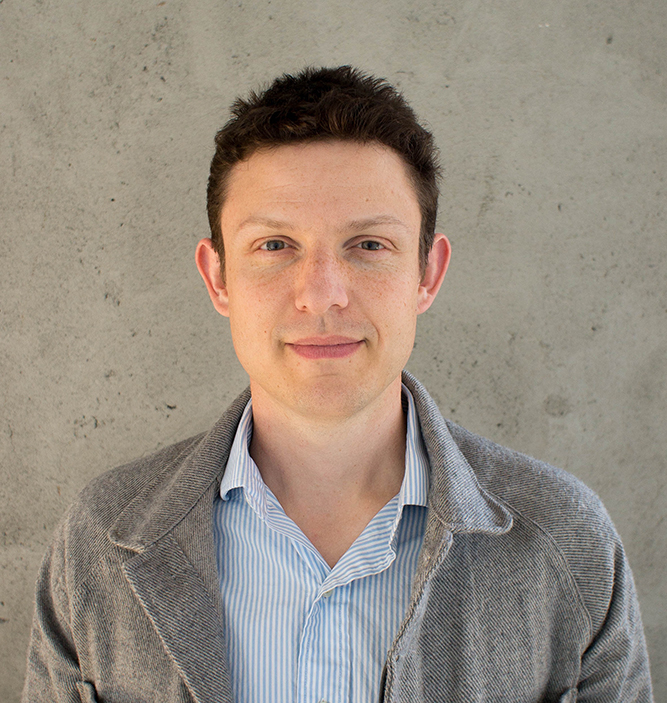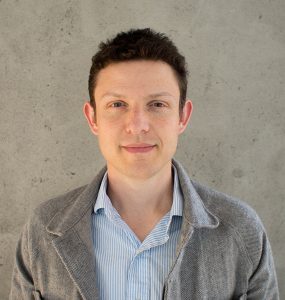Oppenheim ’02 Urges Cooperation, Preparation for Pandemic Threats


Ben Oppenheim ’02, a consulting scientist with Metabiota, a start-up focusing on epidemiological modeling and epidemic risk preparedness, was recently invited to participate in a workshop at the National Academy of Medicine. As a result, Oppenheim and his colleagues wrote an article published in Lancet Global Health titled “Financing of International Collective Action for Epidemic and Pandemic Preparedness,” based on these meetings. Also writing for the Brookings Institution, Oppenheim further explored the challenges of responding to global outbreaks, offering a four-point plan to protect the global poor during pandemics, with co-author Gavin Yamey.
“Post-Ebola and Zika, there’s been increasing worry—and debate—about how to prepare for epidemics and pandemics that threaten global health,” notes Oppenheim, who is also a senior fellow and visiting scholar at New York University’s Center on International Cooperation. “Cracking the problem means thinking through the ways that policy, economics, health, and other factors all intertwine. In the workshop, we were thinking about how to build incentives to improve disease surveillance and outbreak detection, as well as how to improve the legal and economic architecture to speed up the development of vaccines and therapeutics. All of this demands attention to everything from epidemiology, to financing, and to politics.”
Oppenheim also discussed the economic impacts of pandemics, drawing on work by fellow researchers Dean Jamison, Larry Summers, and Victoria Fan on the “inclusive costs” of disease outbreaks. “When we talk about the economic damage caused by an outbreak, we can really think of it in three ways,” he says. “There’s not only the actual cost of providing treatment to people, and the economic disruptions to businesses, which can be enormous. There’s also the years of life lost: the years of productivity, creativity, ingenuity and effort that we’re losing every time someone dies. This kind of loss reverberates within families and communities, sometimes across generations. The real cost of a severe pandemic is staggering.”
A College of Social Studies major at Wesleyan, Oppenheim earned a MA at the London School of Economics and a MA and PhD from University of California at Berkeley. He notes that Wesleyan prepared him for the interdisciplinary work he pursues, starting in a First-Year Seminar, Drugs and Disease, with Fisk Professor of Natural Sciences, Professor of Molecular Biology and Biochemistry and Professor of Integrative Sciences Ishita Mukerji. “We explored the history of infectious disease, how drugs are developed, their mechanisms of action in the body, how pharmaceuticals are produced, how the supply chains work. It was beautifully interdisciplinary, mixing natural and social sciences—a combination you can only really get from a liberal arts college.”
Oppenheim’s post-Wesleyan decade in international development, serving as a consultant for the World Bank as well as for the United Nations, drew him into global health. “I started out working on conflict and post-conflict reconstruction, and began to pay attention to the link between war and infectious disease. When I came to Berkeley to do my PhD, I focused on fragile states—why states fall apart, what happens to societies and to individuals after they fall apart—and kept following the link between governance, violence, and health.”
Invited to co-author a chapter for a Gates Foundation-funded effort, Disease Control Priorities, a reference text on maximizing human health and wellbeing in developing countries, Oppenheim became further involved in global policy conversations about pandemic preparedness. Then the National Academy of Medicine brought him in for a workshop on the issues.
“The goal of this group was to provide a set of arguments for investing in pandemic preparedness. To some people, it might seem like discretionary charity. There’s a moral case for aid: it saves a lot of lives in poor countries. But diseases spread. So we make the argument that aid should also be viewed as an investment in our collective well-being.
“We need to invest in health and we need to have a humanitarian lens on it, without making the poorest and most vulnerable among us seem like a threat. That’s a tricky balance, given our audience.”
Read more about Oppenheim’s work in this Q&A below:
Q: How would you rate our response to Ebola?
A: I think the Ebola crisis could have been a lot worse. At one point a case was detected in Lagos, Nigeria, and field epidemiologists I knew turned pale. Lagos is a megacity—an enormous metropolitan area, with lots of travelers and trade. In that context, disease transmission could have been explosive. And it wasn’t, in large part because the Nigerian government had a lot of experience doing contact tracing—developed during international efforts to stamp out polio—and they were able to stop the transmission chains. Populations in Sierra Leone, Liberia and Guinea were hit very hard. We should have mobilized a lot more money and a lot more clinicians much sooner. Everyone acknowledges the WHO was slow, but basically, the system worked: surveillance spotted the outbreak, we knew reasonably soon what it was, and ultimately it was contained.
Q: How does the Zika threat compare?
A: Zika is tricky because it’s vector-borne, and it’s spread and established itself in areas where mosquitos are present. Zika doesn’t kill, but its association with birth defects has caused a lot of fear and economic disruption. I would worry that with climate change and some of the macro drivers that are impacting the earth’s ecosystems, we’re going to see the movement of diseases such as Zika into new regions. We saw this with West Nile, which turned out to be less significant than people thought—but we’ll start to see diseases that are scary. We have to think about what investments we’re willing to make to stop them. It’s a moment to open and engage with each other internationally, rather than to retreat.
Q: Do you see upcoming threats?
A: One of the arguments we make in the Lancet article is that the basic international infrastructure to detect and respond to outbreaks is being systematically underfunded. That’s a problem. If we don’t deal with it, we’re likely to get surprised by the next pandemic, giving the disease more time to spread. The kind of money needed to fix this is basically equivalent to a rounding error in military budgets.
The thing I think about—and what people in the business think about—is pandemic influenza. Flu is our most consistent pandemic threat. Novel strains show up with historic regularity, and some of them are virulent and deadly. You can think back to 2009. Swine flu wasn’t so bad. We’ve had isolated outbreaks of deadlier novel influenzas, H5N1, H7N9, going back further. In 1918, influenza killed more people than World War 1—and we know that even the number we have is underestimated, because we didn’t count all the deaths in developing countries.
Q: Could flu do that to us now? What do you say to people who tell you, “I never get a flu shot.”
A: Get a flu shot. It lowers your risk from seasonal flu, and it just helps to get in the habit and mindset of prevention. When the next flu pandemic comes—and it will come—its severity is going to depend in part on how quickly we can get flu vaccines developed and distributed.
Influenza’s properties cause it to mutate and evolve quickly. The upshot is—it’s an ever-present threat. We’ve gotten better and better at building infrastructure to handle it, to develop vaccines quickly and to distribute them around the world. But we need people to take them, and we need ways to deliver them to poor and unstable countries so the most vulnerable don’t suffer the most—and there we have a long way to go. I won’t say it keeps me up at night, but it probably should.
Q: What does keep you up at night?
A: The other hat I wear is as a futurist. I work with the Institute for the Future, which coincidentally was born in Middletown, and I spend a lot of time thinking about the stresses that are building on our governing institutions: declining public trust, climate change, political and social volatility. That’s what’s got my attention—the way these factors coalesce in pretty volatile parts of the world. And I’d expect more instability and more political turbulence in the next decade, and probably, as a consequence, less ability to respond to these other stressors, like flu, like another outbreak. That’s the thing to watch.

